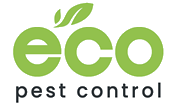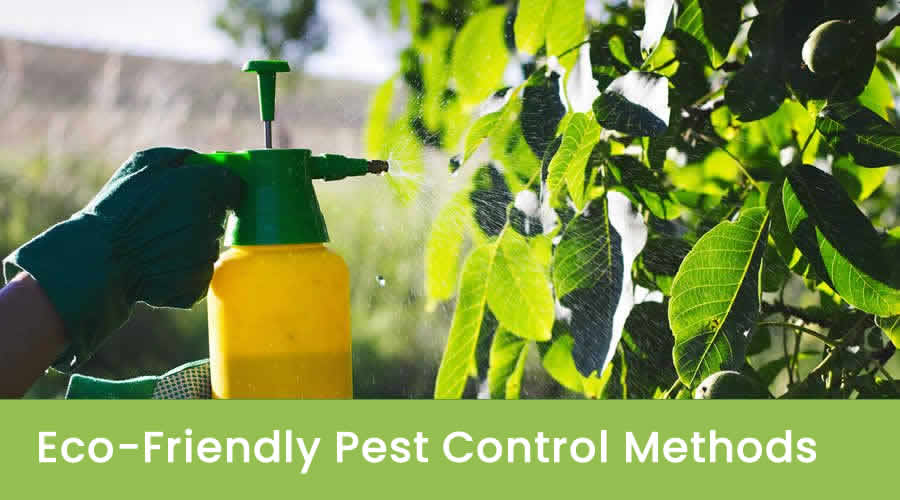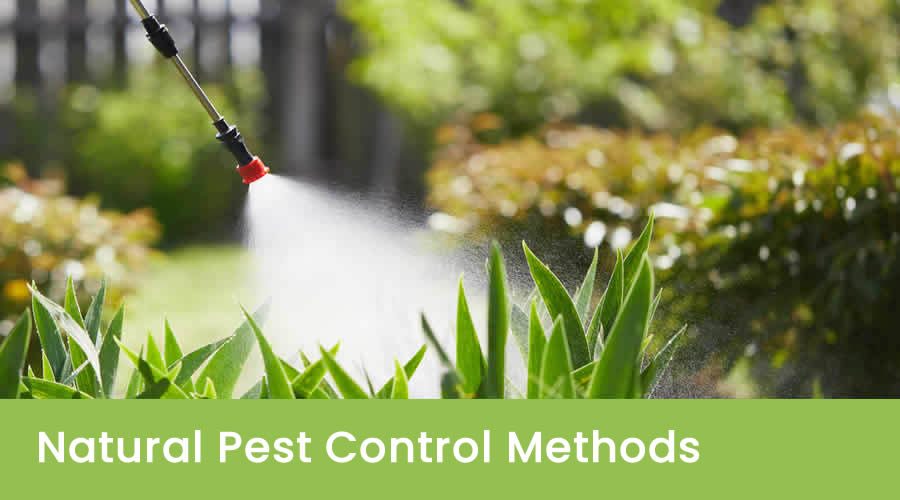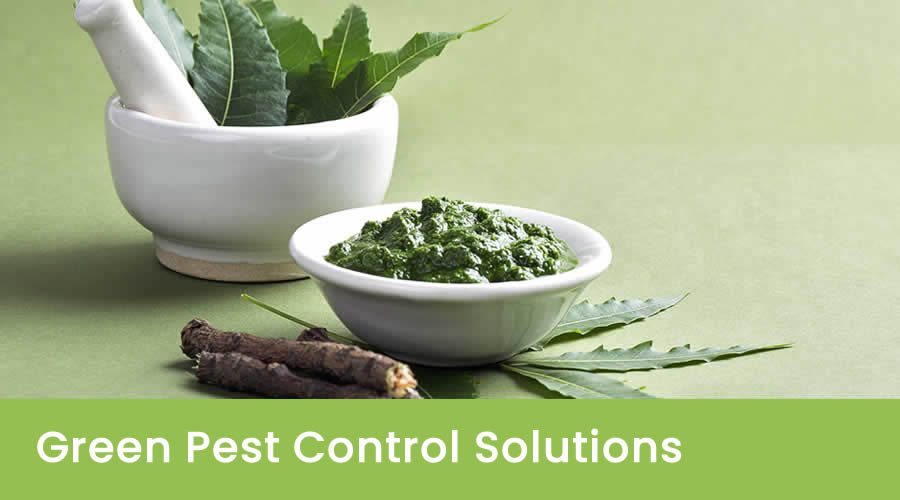Eco-Friendly Pest Control Methods
A Complete Guide To Natural Pest Control
Pests are frustrating. Ants in the kitchen, cockroaches at night, or spiders weaving webs in corners, it can feel like a constant battle. Most people reach for chemical sprays because they work fast. But here’s the problem: those sprays can be harmful to kids, pets, and even the environment.
The good news? You don’t have to choose between living with pests or filling your home with toxic chemicals. There are eco-friendly pest control methods that are safe, effective, and surprisingly easy to try.
Let’s discover the natural ways to protect your home without hurting the planet.
Why Choose Eco-Friendly Pest Control?
Chemical pesticides might kill bugs, but they can also leave behind toxic residues. Over time, pests can even build resistance to them, making the sprays less effective.
Eco-friendly methods work differently. They focus on prevention, natural deterrents, and safer solutions. These options don’t just kill pests, they restore balance. And the best part? They’re safe for your family, pets, and garden.
Imagine sitting in your backyard, knowing you’ve kept pests away without harming birds, bees, or butterflies. That’s the real beauty of natural pest treatments.
Integrated Pest Management (IPM)
Eco-friendly pest control isn’t about a single solution. It’s about using a mix of strategies, also called IPM program. IPM combines prevention, monitoring, and control methods.
Here’s what it looks like in action:
- Habitat modification: Make your home less attractive to pests. Seal cracks, fix leaks, and remove clutter.
- Physical barriers: Use screens, nets, or row covers in gardens.
- Traps and pheromone traps: Catch pests before they spread.
- Biological control: Let nature help, by using predators like ladybugs to eat aphids.
Instead of relying only on sprays, IPM uses layers of defence. That’s why it works long-term.
Natural Ingredients That Work
Let’s look at some common, safe ingredients you can use at home. Many are already in your pantry or garden.
1. Diatomaceous Earth
This fine powder comes from fossilised algae. Sprinkle it around entry points or in cupboards. It works by cutting into insects’ exoskeletons, drying them out. Safe for people and pets, deadly for ants, fleas, and cockroaches.
2. Neem Oil
Extracted from the neem tree, neem oil is a star in eco pest control. It disrupts insect growth, making it hard for them to feed or reproduce. Perfect for gardens battling aphids, whiteflies, or mites.
3. Insecticidal Oils
These oils smother soft-bodied insects like scales or mealybugs. Unlike chemical sprays, they break down quickly, leaving no toxic residue.
4. Baking Soda
A simple kitchen item that does more than clean. Mix baking soda with sugar to bait and kill cockroaches. It’s safe, cheap, and surprisingly effective.
5. Microbial Insecticides
These are living organisms, like Bacillus thuringiensis (Bt), that target specific pests such as caterpillars. They don’t harm humans, pets, or pollinators.
6. Botanical Insecticides
Made from plants, these natural pesticides are biodegradable and less toxic than synthetic ones. Pyrethrum, from chrysanthemum flowers, is one example.
7. Essential Oils
Lavender, peppermint, eucalyptus, and tea tree oil make excellent natural pest repellants. You can even make homemade essential oil sprays to keep mosquitoes, flies, and ants at bay.
8. Vinegar
Ants hate vinegar. Wipe down counters with a vinegar solution to erase scent trails. It’s also handy for fruit flies when mixed with a little dish soap.
9. Boric Acid
A natural mineral that kills cockroaches and ants when ingested. Sprinkle lightly in areas pests travel, but use sparingly if you have pets.
10. Citrus Peels
Don’t throw away orange or lemon peels. Their oils repel spiders and ants. Rubbing citrus peels on windowsills or doorways keeps bugs from sneaking in.
11. Garlic Spray
Blend garlic with water to create a natural repellent. Spray it on plants to deter aphids, beetles, and caterpillars. Bugs hate the smell, your garden will love it.
Eco-Friendly Methods for the Garden
Your garden can be a safe haven for both plants and helpful insects if you use the right strategies.
Companion planting
Plant basil near tomatoes to repel pests. Marigolds deter nematodes and attract pollinators.
Insectary plants
Flowers like dill, fennel, and yarrow attract ladybugs, lacewings, and bees, nature’s pest control squad.
Handpicking
Sometimes the simplest solution works best. Pick caterpillars or beetles off plants by hand.
Physical barriers
Row covers, collars around stems, or sticky traps stop pests before they reach your crops.
By combining these approaches, you create a natural balance in your garden without chemicals.
Safer Ways Indoors
Green pest control isn’t just for gardens. Inside the home, natural repellents work wonders.
- Use pheromone traps for moths in the pantry.
- Spray therepellents like peppermint oil near doors and windows.
- Try vinegar or citrus peels to repel ants.
- Place traps for rodents instead of poison baits.
Small changes can dramatically reduce pest problems indoors.
Prevention is the Best Pest Control
One of the strongest eco strategies is prevention. When you make your home less attractive, pests don’t move in.
Here are a few steps:
- Seal gaps and cracks.
- Keep food sealed in airtight containers.
- Fix leaky pipes that attract cockroaches and silverfish.
- Clear clutter where rodents hide.
- Store firewood away from your house.
This is called environmental alteration, and it’s one of the most powerful tools in organic pest control.
DIY Recipes to Try
Want to get hands-on? Here are a few easy, safe recipes.
- Homemade essential oil spray: Mix 10 drops of peppermint oil with 1 cup of water. Spray around baseboards to repel ants.
- Garlic spray for plants: Blend 2 garlic cloves with 1 litre of water. Let sit overnight, strain, and spray on leaves.
- Vinegar fruit fly trap: Pour apple cider vinegar in a bowl, cover with plastic wrap, and poke holes. Flies can get in but not out.
- Baking soda roach bait: Mix equal parts baking soda and sugar. Place small amounts in lids where roaches travel.
- These DIY methods are cheap, safe, and surprisingly effective.
The Benefits Go Beyond Pest Control
Pest management isn’t just about getting rid of bugs. It’s about creating a healthier environment for everyone.
- For families:
No need to worry about children touching toxic surfaces.
- For pets:
Cats and dogs stay safe from harmful chemicals.
- For the planet:
You’re protecting soil, water, and pollinators.
- For your peace of mind:
You’re in control without guilt.
When you use natural pesticides, you’re not just fighting pests, you’re building a safer, greener home.
Final Thoughts
Eco-friendly pest control is more than a trend. It’s a smarter, healthier, and more sustainable way to deal with pests. By combining IPM strategies, natural ingredients such as diatomaceous earth and neem oil, and simple changes like habitat redesign, you can keep your home and garden safe.
So next time you see ants marching across the counter or aphids on your roses, skip the chemical sprays. Instead, reach for natural treatments, try biological control, or make your own safe sprays. Your family, pets, and the planet will thank you.
Living pest-free doesn’t have to mean harming nature. With eco-friendly methods, you can have both, a healthy home and a thriving environment.





